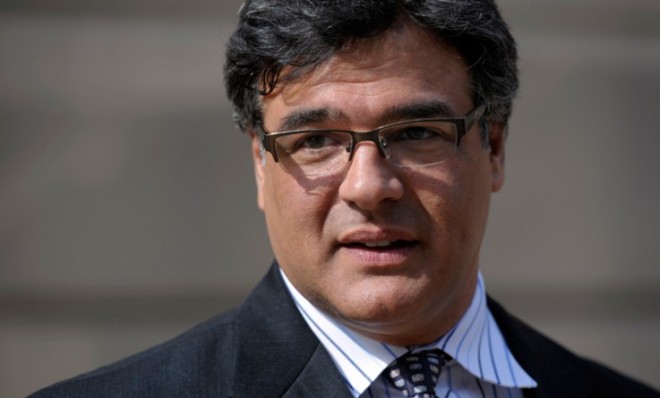In defense of lawful secrecy
CIA whistleblower John Kiriakou is no hero

A free daily email with the biggest news stories of the day – and the best features from TheWeek.com
You are now subscribed
Your newsletter sign-up was successful
Few would deny that scrutiny of government is a prerequisite for freedom. But while Julian Assange argues that total transparency offers the emancipation of society, the truth is more complex. The government must have some privacy, simply because covert intelligence action is often needed to support our democracy.
As a CIA officer, John Kiriakou betrayed that principle. And he deserves no reverence for doing so.
Kiriakou gave a journalist the name of a former CIA employee who allegedly engaged in waterboarding. And starting his 30-month prison sentence for that crime, Kiriakou told the BBC, "My case was not about leaking — my case was about torture." His fan club might like this excuse, but it doesn't comport with reality. Kiriakou isn't in prison for talking about waterboarding; he's there for unlawfully disclosing an undercover CIA officer's identity.
The Week
Escape your echo chamber. Get the facts behind the news, plus analysis from multiple perspectives.

Sign up for The Week's Free Newsletters
From our morning news briefing to a weekly Good News Newsletter, get the best of The Week delivered directly to your inbox.
From our morning news briefing to a weekly Good News Newsletter, get the best of The Week delivered directly to your inbox.
Acording to the Department of Justice, Kiriakou's leaks were numerous. While Kiriakou claims his sentence is a "badge of honor," his trial judge had a different take. Reluctantly approving Kiriakou's plea deal as "way too light", the judge added, "This is not a case of a whistleblower. This is a case of a man who betrayed a solemn trust."
The condition of trust permeates any functioning intelligence agency. It informs how intelligence services interact with their foreign counterparts and it acts as the roots from which intelligence operations find success.
This notion of trust is crucial to America's security.
Without trust, the sharing of intelligence material simply can't occur. Unless an individual trusts that his information won't be misused and that the source or method of acquiring that information will be kept secret, then obviously he'll be reluctant to share that knowledge with others. This isn't a paper problem. Prior to 9/11, mistrust between the FBI and CIA meant that intelligence on two of the 9/11 hijackers wasn't shared. Following 2010's WikiLeaks disclosure of U.S. diplomatic cables, American diplomats are less trusted. This dynamic also operates on the flip side. In Iraq, intelligence networking was central to the success of the 2007 surge strategy.
A free daily email with the biggest news stories of the day – and the best features from TheWeek.com
Without trust, intelligence officers are understandably reluctant to take necessary risks in pursuit of crucial objectives. Again, this is pretty basic. If an officer believes that his identity may be compromised in the aftermath of an operation, then his willingness to embrace risk and engage in that operation will be seriously degraded. Contrary to Hollywood's portrayal, intelligence officers aren't faceless men (or women) in black who are impervious to the laws of nature; they are people, with lives to maintain and families they must protect.
Without trust, intelligence officers cannot recruit foreign agents to America's side. Satellites and wiretaps can't see and hear everything. Nor can our intelligence officers alone infiltrate all of our adversaries. The recruitment of foreign sources is absolutely vital. And although motivations for assisting the United States vary by individual, one expectation is common and unyielding. These individuals require confidence that their co-operation will not become public.
Some people believe that government secrecy is an amorphous obstacle to true freedom, and sometimes, they're right. Suspicion of government is healthy. But absolutism in the pursuit of transparency endangers the very freedom which this philosophy seeks to propel. Without some measure of lawful secrecy sustained by trust, effective intelligence operations are impossible.
Tom Rogan is a conservative writer who blogs at TomRoganThinks.com. Follow him on Twitter: @TomRoganTweets.
Tom Rogan is a conservative writer who blogs at TomRoganThinks.com.
-
 How the FCC’s ‘equal time’ rule works
How the FCC’s ‘equal time’ rule worksIn the Spotlight The law is at the heart of the Colbert-CBS conflict
-
 What is the endgame in the DHS shutdown?
What is the endgame in the DHS shutdown?Today’s Big Question Democrats want to rein in ICE’s immigration crackdown
-
 ‘Poor time management isn’t just an inconvenience’
‘Poor time management isn’t just an inconvenience’Instant Opinion Opinion, comment and editorials of the day